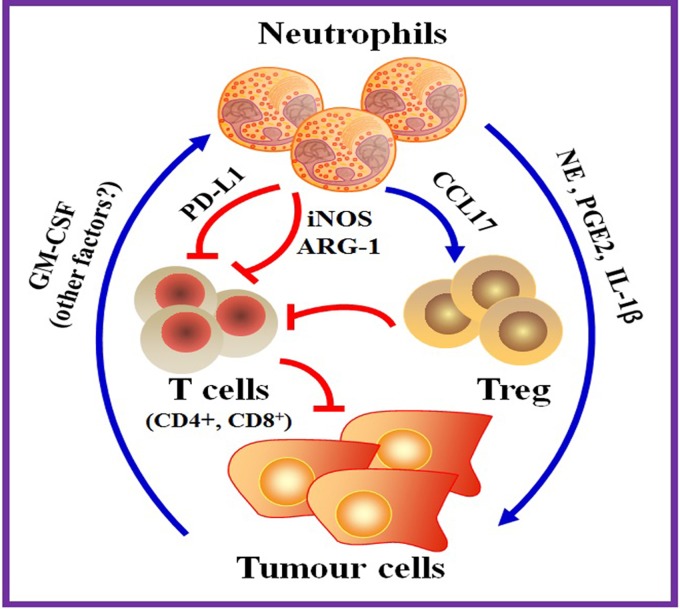Figure 1.
Neutrophils promote tumour growth through direct and indirect mechanisms. Neutrophils can secret proteinases and inflammatory factors that directly promote the proliferation of tumour cells, such as neutrophil elastase (NE), prostaglandin E2 (PGE2) and interleukin-1 β (IL-1β). Neutrophils can also suppress T-cell immunity to promote tumour growth. Neutrophils inhibit antitumour T-cell responses through cell contact-dependent and independent mechanisms. Neutrophils have previously been shown to produce inducible nitric oxide synthase (iNOS) and arginase 1 (ARG1) to inhibit T-cell function. Neutrophils have also been reported to recruit regulatory T cells (Treg) by releasing chemokine C-C motif ligand 17 (CCL17). Wang et al demonstrated that tumour-derived granulocyte-monocyte colony-stimulating factor (GM-CSF) induced the expression of programmed death-ligand 1 (PD-L1) on neutrophils, which in turn diminished T-cell immunity via its interaction with PD-1 on T cells, ultimately leading to increased tumour growth.

